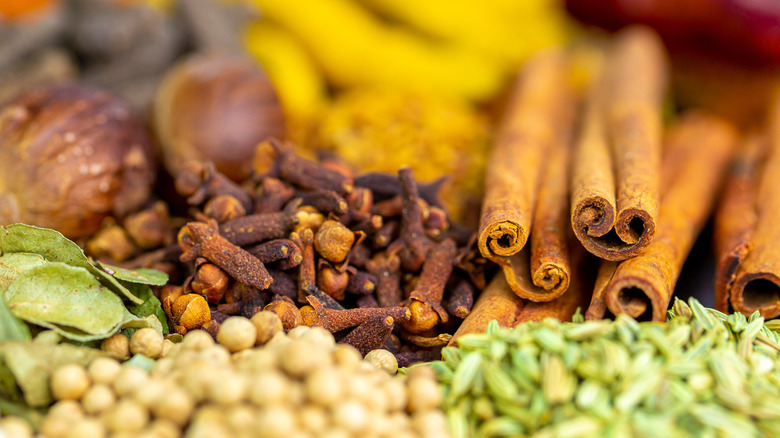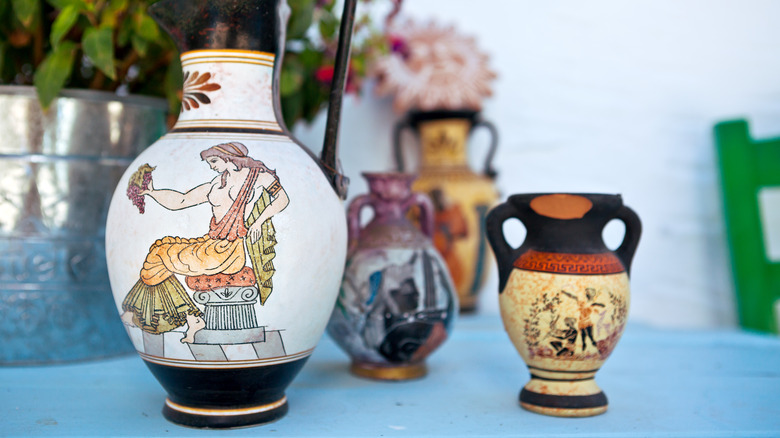The Unconventional Spices Ancient Romans Added To Wine
Wine is a huge part of daily life in Italy, and it's basically been that way since ancient times. With Brita-filtered pitchers being thousands of years off, potable water wasn't always easy to come by for the Romans of yesteryear, at least until they improved on the design of aqueducts. Therefore, everyone, from slaves to the elite, quenched their thirst with wine. Much as we might want to get Roman-tic about it, the vino they drank wasn't exactly what modern wine lovers would consider a good product. And to make their beverage of choice more palatable, the Romans added a number of flavorings and spices.
Among these flavor enhancers were saffron, pepper, cinnamon, coriander, and flowers. Outside of imparting flavor and adding color to wine, these various spices and herbs were used for medicinal purposes. For added sweetness, they would reach for honey and dates. And while Wine Spectator would dock points for the use of these adulteratives, it's important to remember that viticulture was in its infancy, and were it not for the Romans' commitment to the craft, we might have had centuries to wait before we could enjoy the wines of today.
Sugar and spice
The ancient Romans had good intentions for including ingredients in their wines beyond grapes. Often, adding flavor enhancers to wine was the result of trying to mask the effects of previous additives. For example, they would add chalk to cloudy wines to filter out sediment, but doing so would make the wine bitter. To counteract this, they would then add elderberry to boost the color of the wine and cinnamon and violets to offset the bitter flavor.
And this balancing act was even done on the social side. Since wine was often the safer beverage, as the alcohol would keep bacteria at bay, Roman wine was watered down, making drunkenness (public or otherwise) something that —at the very least — had to be worked at. This diluted drink affected the potency of its flavor, which was another reason to doctor it up with extra sweeteners and flavorings.
Today, wine is generally released when it's ready to drink and requires no additional spices, fruits, or flowers in order to enjoy it. But spiced wine at Christmas and Sangria are as popular as ever and are, perhaps, a nod to what ancient Rome did first.

